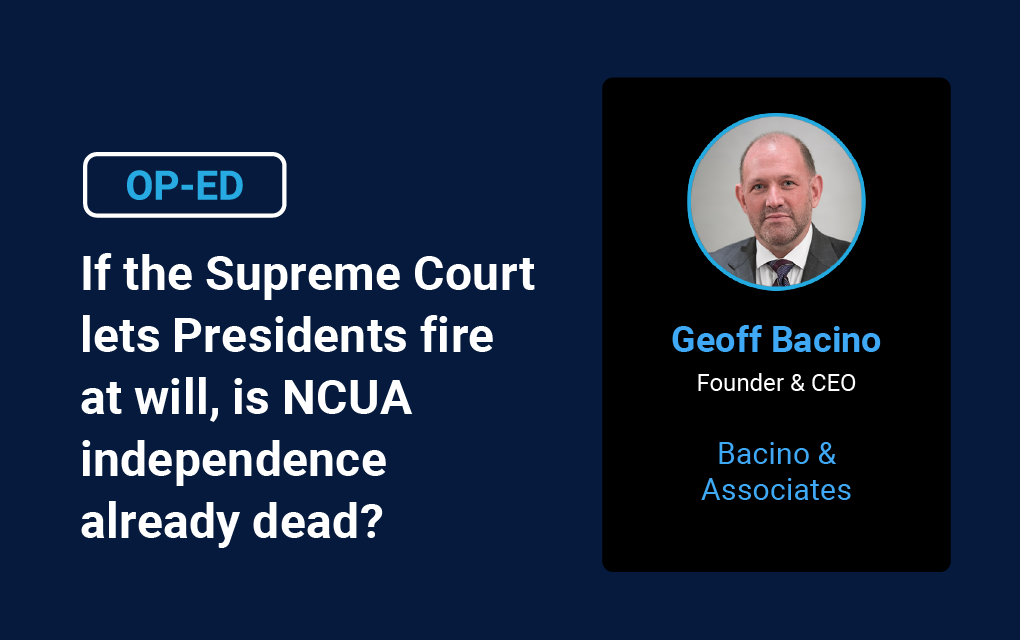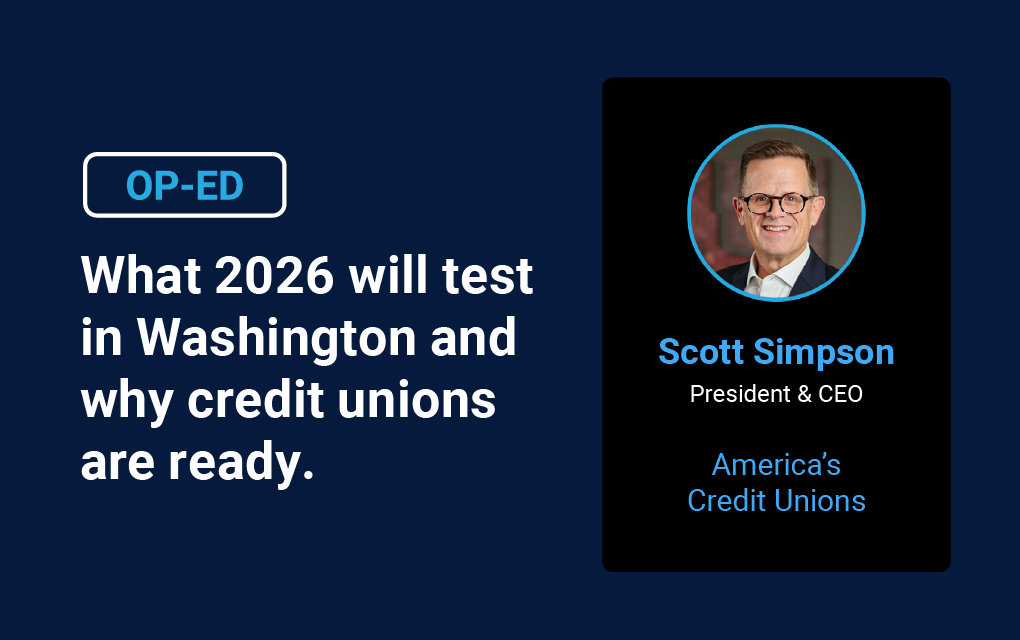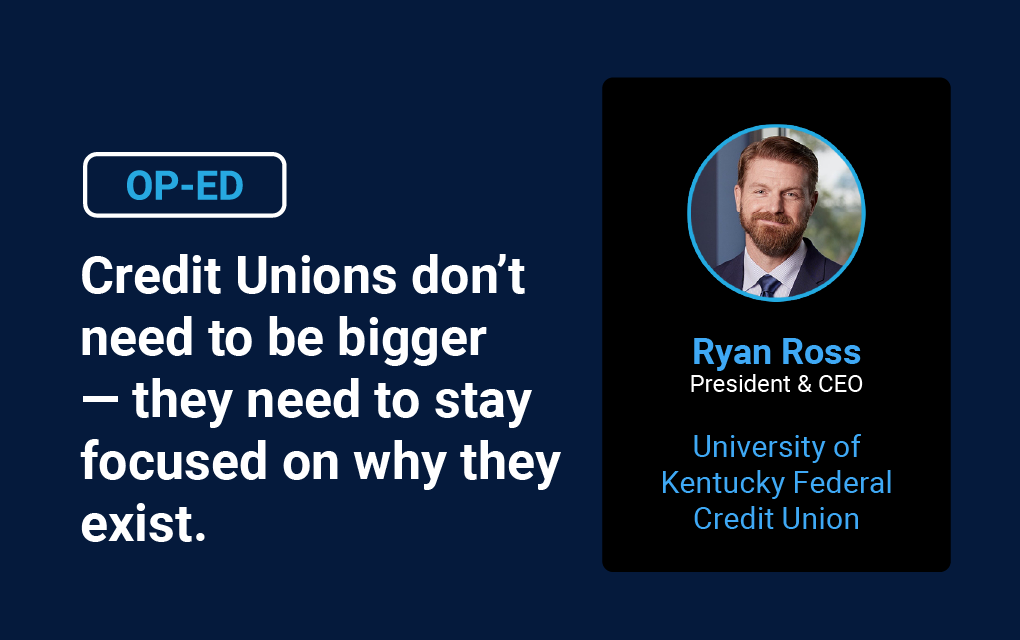A banker’s observations from inside the Beltway
Written By:

Jim Rieniets
President and CEO
INSBANK
For most every year since the Great Recession, I’ve joined a delegation of Tennessee bankers for an annual trip to DC to meet with both elected officials and regulatory agencies.
I’ve also had the opportunity to serve as government relations chairman for both state and national trade associations during that time, and in those roles engaged in meaningful dialogue around a variety of industry issues over the years.
Against that backdrop, I have to say that this year’s visit was, quite frankly, extraordinary. And while many of my peers expressed more optimism around stemming the tide of harmful ideas coming out of Washington than they ever had previously felt, I can’t help but find myself a little more skeptical than most. There are certainly some refreshing ideas and perspectives taking root inside the Beltway, but I’ve come to appreciate that meaningful change doesn’t come easy for the banking industry.
Why Bankers Should Feel Good
While I doubt bankers’ jobs will get easier anytime soon, they should feel good about the change in leadership. The prior administration seemingly appointed regulatory leaders that were predisposed to think banks sought to do harm to their customers. The message from new and proposed members of agency leadership seems to appreciate that the banking system is characterized by both sufficient competition and ample existing regulation such that consumers and business have plenty of choices.
The new leadership seems to also appreciate that there is a dual mandate for their oversight of the banking system: prudent regulation and economic development of the communities banks serve. Specific ideas espoused by new leadership and discussed during our visit included: tailoring regulatory examinations; improving the process for M&A approvals; shifting examination of smaller community banks to state regulatory agencies; and re-visiting the implementation of small business data collection.
On Capitol Hill, there is also movement on certain legislative priorities that had previously stalled. “Trigger Leads” legislation is getting traction and bi-partisan support, as it should, while the Acre Act also gains momentum as its proponents seek to level the playing field for banks serving agriculture industries.
Why Bankers Should Manage Their Expectations
My years of advocacy have left me somewhat jaded, though perhaps a bit wise. Too many times, bankers have seen good and practical ideas die on the vine. History seems to repeat itself where an important issue arises and gains momentum, only to fall victim to either bureaucratic inertia or politicization.
On this point, I would recommend caution on two issues. Reforming deposit insurance was “all the rage” in the wake of the notable 2023 bank failures, as the episode exposed the antiquated and inadequate FDIC insurance program for what it is. Those outside of the industry would probably be shocked to know that virtually no progress has been made in addressing this existential risk in the two years that have passed. Infighting remains within the industry, as both our nation’s largest banks and smallest banks have little motivation for change, albeit for vastly different reasons, while regional and mid-size banks live in fear of the next industry liquidity or credit crisis. On our most recent DC trip, bankers were also teased by the prospect of credit union taxation as part of a larger deficit reduction effort.
While there are legitimate level-playing field concerns on this front, bankers should not forget the power of the credit union lobby inside the Beltway and should check their expectations at the door.
Why Bankers Should Be Concerned
One of the pieces of legislation gaining momentum is the Genius Act, which purports to both bring regulation to the crypto currency industry, if you can call it that, and position the U.S. as a leader in stablecoins. While I’m sure there are a handful of banks positioning themselves to benefit from the manifestations of the legislation, the broader industry and its regulators would be well-served to prepare for yet another potential unintended consequence.
While the architects of the bill have purportedly written provisions to limit risks to liquidity in the banking system, it is not to the finish line. This is also unprecedented territory: we just don’t know what the affected flow of funds in the banking system will be.
Another area of concern is the lack of the creation of new banks, and no existing proposal to remedy that situation. While new leadership is espousing better ways to facilitate the process, the elephant in the room is that investors are hard pressed to see j-curve investment outcomes that make sense to deploy capital. Without meaningful regulatory relief for de novo banks to minimize early-stage costs, this situation will not change.
Outside of legislation, other concerns include uncertainty around the impact of tariffs on the economy, and potential revolving-door changes to administration leadership, as was the case during the prior Trump administration.If there is one lesson learned from years of engagement in industry advocacy, it is that political wind changes are rarely as impactful to the banking industry as people might think.
Between bureaucratic inertia and political processes, the pendulum swing is rarely extreme. Whether or not that is a bad thing is also debatable.
Based in Nashville, Tennessee, INSBANK has $903 million of assets and reported net income of $9.1 million in 2024.
Disclaimer
The views, opinions, and perspectives expressed in articles and other content published on this website are those of the respective authors and do NOT necessarily reflect the views or official policies of Tyfone and affiliates. While we strive to provide a platform for open dialogue and a range of perspectives, we do NOT endorse or subscribe to any specific viewpoints presented by individual contributors. Readers are encouraged to consider these viewpoints as personal opinions and conduct their own research when forming conclusions. We welcome a rich exchange of ideas and invite op-ed contributions that foster thoughtful discussion.








